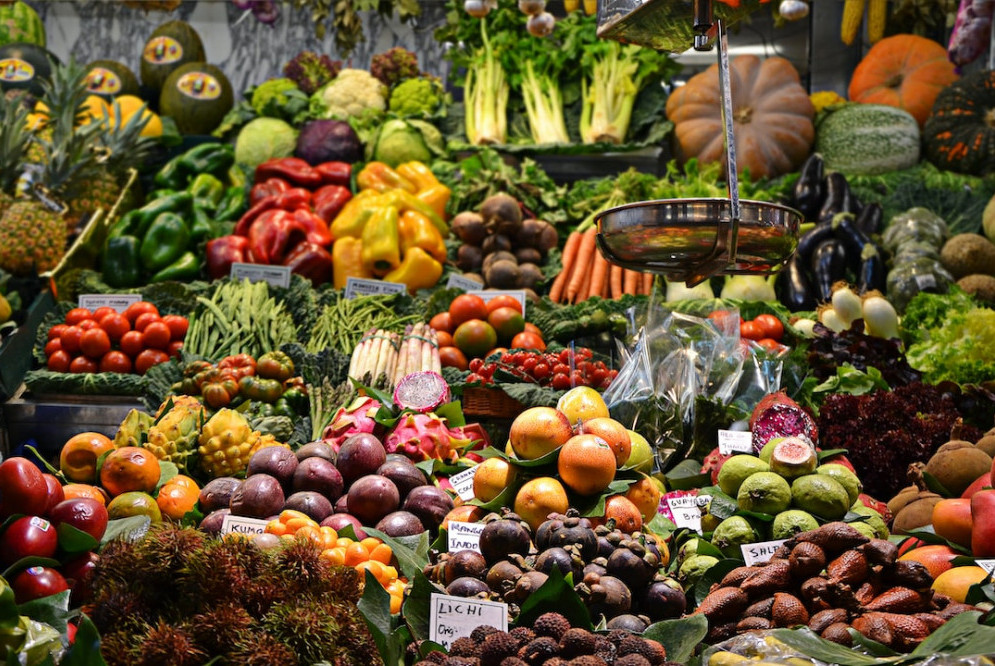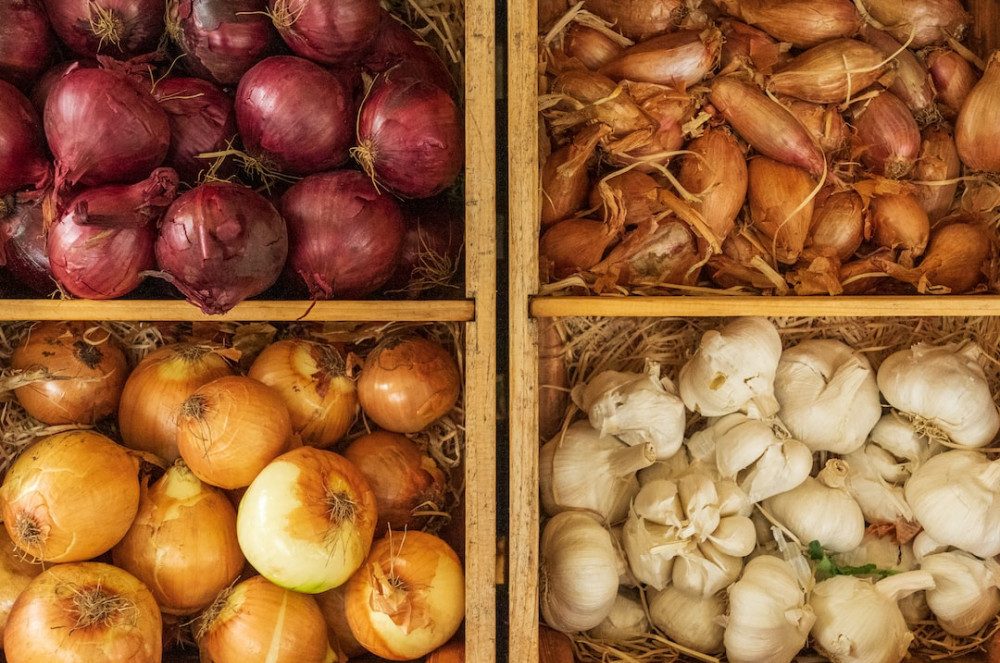World of Vegetables

In recent years, the popularity of plant-based diets has soared with individuals embracing a conscious and compassionate approach to their eating habits.
At the heart of a Whole Food Plant-Based lifestyle lies an incredible variety of vegetables. These vibrant and nutrient-packed wonders form the cornerstone of a healthy and sustainable way of eating.
In this comprehensive blog post, we will delve into the fascinating World of Vegetables, identify and explore their immense contributions to your plant-based diet.

Our List of Fresh Vegetables
Leafy Greens: Nature’s Nutrient Powerhouses
Leafy greens, such as spinach, kale, and Swiss chard, deserve the spotlight as some of the most nutritious vegetables available. Bursting with essential vitamins, minerals, and antioxidants, they are true champions of health. These greens are packed with fiber, aiding digestion and promoting healthy weight management.
Additionally, they provide an abundance of nutrients like vitamin K, vitamin C, and folate, which are vital for maintaining strong bones and a robust immune system.
By incorporating leafy greens into your meals, you infuse them with an explosion of flavors and textures that will leave your taste buds singing.
Bok Choy: A Versatile Leafy Green
Bok choy, with its crisp texture and mild flavor, is a versatile leafy green that has gained popularity in both Asian and Western cuisines. It is rich in vitamins A, C, and K, as well as calcium and potassium.
Bok choy is often stir-fried or sautéed, but it can also be enjoyed raw in salads or added to soups and stews. Its unique combination of crunchy stalks and tender leaves adds a delightful contrast to any dish.
Sum Choy: Sweet and Succulent
Sum choy, also known as Chinese lettuce or Celtuce, is a lesser-known vegetable that deserves a place in your plant-based repertoire. It boasts a unique flavor profile, with hints of sweetness and a subtle nuttiness.
Sum choy is an excellent source of dietary fiber, vitamin C, and vitamin E. Its versatility shines in stir-fries, salads, or even lightly grilled. The tender leaves and crunchy stem provide a delightful textural element to your culinary creations.
Um Choi: The Flavorful Mustard Green
Um choi, a variety of mustard greens, adds a bold and peppery kick to your plant-based dishes. It is packed with nutrients, including vitamins A, C, and K, as well as calcium and iron.
Um choi is traditionally used in Asian cuisines, particularly in stir-fries and pickled preparations. Its robust flavor can withstand high heat, making it an excellent choice for adding depth to sautés or stir-fried vegetable medleys.
Fresh Vegetables That Deserve Special Recognition.
Kangkung: An Indonesian Delight pronounced “kang-koong” Chinese word kōng xīn cài
Kangkung, also known in English as water spinach is from the morning glory family and is a popular vegetable in Southeast Asian cuisine. With its long, hollow stems and tender leaves, kangkung offers a delightful crunch and a subtle flavor reminiscent of spinach.
It is rich in vitamins A, C, and E, as well as minerals like iron and potassium.
Kangkung is commonly stir-fried with garlic and chili, adding a refreshing and vibrant element to the dish. It can also be enjoyed in soups, curries, or even as a side vegetable.
Chinese Watercress (Ipomoea aquatica), commonly known as Ong Choy, is a leafy green vegetable that belongs to the choi family. With its long, hollow stems and vibrant green leaves, Chinese Watercress is highly valued for its unique flavor and nutritious properties.
Let’s shift our attention to another group of vegetables.
Colorful Cruciferous Vegetables the Health Heroes on Your Plate.
Cruciferous vegetables, including broccoli, cauliflower, and Brussels sprouts, not only add visual appeal to your plate but also offer a myriad of health benefits. These nutritional powerhouses are rich in phytochemicals, potent compounds that have been associated with reducing the risk of chronic diseases.
Incorporating cruciferous vegetables into your plant-based diet provides a generous dose of vitamins A, C, and K, as well as fiber, which aids in digestion and promotes heart health. The unique flavors and textures of these vegetables make them a delightful addition to a wide range of dishes.
Now, let’s venture into the earthy world of root vegetables.
Root Vegetables: Earth’s Energy Boosters
Root vegetables, including sweet potatoes, carrots, and beets, offer not only delicious flavors but also a natural source of energy. Bursting with complex carbohydrates, fiber, and an array of vitamins, these vegetables keep you feeling satiated and energized throughout the day.
Rich in antioxidants and minerals like potassium and magnesium, root vegetables contribute to overall well-being. Whether roasted to bring out their natural sweetness or used in hearty stews, these earthy delights add depth and nourishment to your plant-based meals.
As we continue our exploration, let’s turn our attention to a group of vegetables that add depth, flavor, and medicinal properties to dishes: alliums.

Versatile Alliums Adding Depth and Flavor.
Allium vegetables, including onions, garlic, and leeks, have long been celebrated for their culinary appeal and health benefits. These aromatic wonders have a unique ability to enhance the taste profiles of various dishes. Beyond their culinary prowess, alliums offer a range of health benefits.
They contain sulfur compounds that have been linked to reducing the risk of certain cancers and improving cardiovascular health. With their anti-inflammatory properties and immune-boosting effects, allium vegetables are essential components of a plant-based diet that prioritize overall well-being.
Continuing our exploration of vegetables in a Whole Food Plant-Based diet, let’s discover some more incredible options that can elevate your meals and enhance your well-being.
Vibrant Bell Peppers Colorful Capsicum Fiesta.
Bell peppers, available in a variety of vibrant hues bring both visual appeal and a burst of flavor to your plant-based dishes. These crunchy vegetables are rich in vitamins A and C, antioxidants that promote healthy skin and support immune function.
They also provide dietary fiber and are low in calories, making them an excellent choice for weight management. Whether enjoyed raw in salads or sautéed in stir-fries, bell peppers add a delightful crunch and a pop of color to your plant-based creations.
Let’s now explore a vegetable that often gets overlooked but offers an array of health benefits and versatility in the kitchen: the humble cucumber.
Cooling Cucumbers Hydration and Refreshment in Every Bite.
Cucumbers, composed mostly of water they are not only incredibly hydrating but also offer numerous health benefits. They are a great source of vitamins K and C, as well as various minerals like magnesium and potassium.
With their high-water content and low-calorie count, cucumbers contribute to healthy digestion and aid in weight management. Enjoy them in refreshing salads, as a crunchy addition to sandwiches, or even in homemade cucumber-infused water for a refreshing twist.
Now, let’s turn our attention to a versatile and often underestimated vegetable that provides a unique culinary experience: the artichoke.
Artichokes Delightful Gastronomic Adventure.
Artichokes may appear daunting at first glance, but they offer a delicious and satisfying culinary experience. These edible flower buds are packed with dietary fiber, which aids in digestion and supports heart health.
Artichokes also contain antioxidants and compounds that are known to promote liver health and protect against certain types of cancer. From steamed and served with a zesty dip to marinated in salads or incorporated into pasta dishes, artichokes add a delightful and sophisticated touch to your plant-based meals.
Lastly, let’s explore a vegetable that adds a touch of earthiness and richness to various dishes: the mushroom.
Mushrooms: * Umami Delights for Every Palate. Mushrooms, with their unique texture and umami flavor offer a delightful addition to plant-based dishes. They are low in calories and fat, making them an excellent choice for weight management. Mushrooms also provide important nutrients like B vitamins, selenium, and potassium.
They are known to have immune-boosting properties and may support heart health. Whether sautéed, grilled, or used in hearty stews and stir-fries, mushrooms bring a depth of flavor and a meaty texture that can satisfy even the most discerning palates.
*Stay tuned for a complete post dedicated just to Small Edible Mushrooms.
Conclusion,
As we have learned, Vegetables are the superheroes of a Whole Food Plant-Based diet, providing an incredible array of flavors, textures, and nutrients. From the nutrient-packed leafy greens to the health heroes of cruciferous vegetables, the energy-boosting wonders of root vegetables, and the depth and flavor of alliums.
Furthermore, by incorporating a diverse range of vegetables into your meals you can enjoy a wide range of health benefits including improved digestion, strengthened immunity, and reduce risk of chronic diseases.
Additionally, embracing a Whole Food Plant-Based lifestyle not only nourishes your body but supports local growers, while growing your own backyard garden increases your families’ food security.
So, let’s celebrate the bounty in the World of Vegetables and work toward a healthier and a better way of living.
Be sure to sign up for your > Free 12 Tips Food Guide <
Cheers,
Plantaful Life Team
Disclaimer: The information shared in this blog post and on our website is for educational and informational purposes only. We are here to inspire and support you on your plant-based journey. However, always prioritize your health and consult with your trusted healthcare provider for personalized advice. By using our website, you acknowledge and agree that you have read and understood this medical disclaimer, and you acknowledge the significance of seeking professional medical advice for your specific health needs.